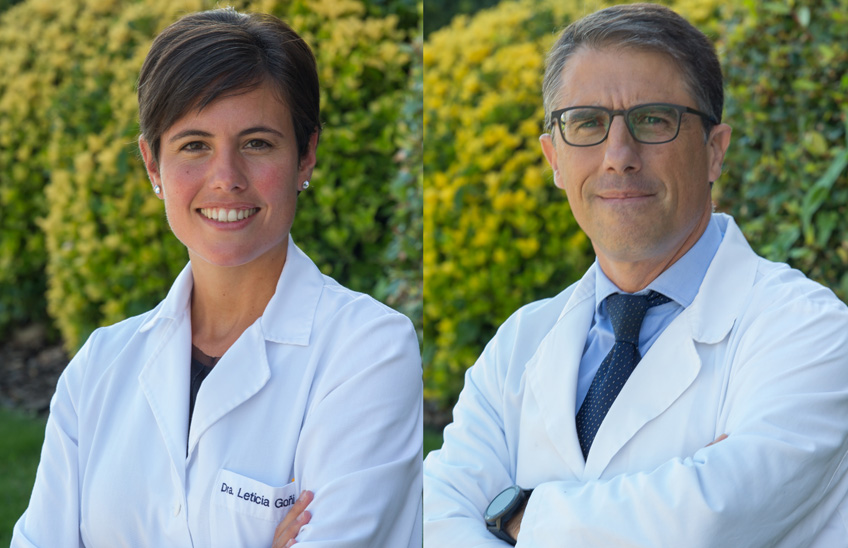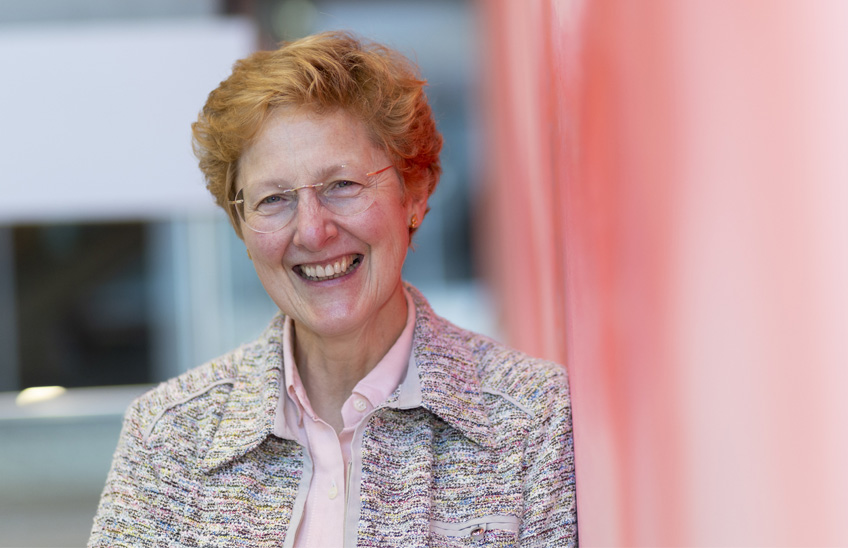A University project on family cooking habits awarded by Cookpad
The study, led by Full Professor of Preventive Medicine and Public Health Miguel Ruiz-Canela, aims to reduce the risk of obesity and increase adherence to a healthy and sustainable per diem expenses in households.

FotoManuelCastells/Miguel Ruiz-Canela, author of the study and Full Professor of Preventive Medicine and Public Health, and Leticia Goñi, team member de research
27 | 07 | 2022
A project from the University of Navarra has won the award 'Research Idea Contest' organized by Cookpadthe world's largest platform for sharing recipe ideas and cooking tips. The winning work , the only Spanish among the four winners, has been elaborated by the Full Professor de Preventive Medicine and Public Health of the School of Medicine Miguel Ruiz-Canela. This recognition will allow the professor's team privileged access to the database section of the 'Gallup World Poll' (survey worldwide conducted by Gallup on relevant social issues) dedicated to analyzing home cooking habits in a sample representative of more than 140 countries and territories; in order to develop a broader research on the factors that determine family cooking habits, and whose results will be translated into several scientific publications.
Since 2018, Cookpad and Gallup have been collaborating on the 'World Cooking Index', which the winning team will also be able to work with, and which is the first report in the world to analyze the culinary habits of the planet by comparing the frequency of cooking in households, with respect to a series of variables core topic, such as geographic location, gender, income and area of residency program, among others.
"Having access to all this information is a unique opportunity to know the factors that determine whether or not to cook in households with children under 15 years of age and in a world population sample ," says Professor Ruiz-Canela regarding this award, which also has a financial endowment of 5,000 euros for the team researcher.
"We want to focus research on the social, occupational, economic and lifestyle causes that may determine whether or not to cook at home, through four specific objectives: first, to identify the social predictors for a leave frequency of home-cooked food consumption (at least 3 days a week); second, elaboration of home-cooked food; third, to compare the differences in the frequency of eating home-cooked food according to the issue of children; and fourth, to evaluate if there are differences on the frequency of who cooks food at home according to the issue of children", enunciates the also of researcher of the CIBEROBN.
Reduce obesity and increase adherence to healthy per diem expenses
"The 'World Cooking Index' and the 'Gallup World Poll' that the University of Navarra team will have access to contain data social, cultural and economic data collected by both entities, could help fill a gap in the research that will provide us with a better understanding of the barriers and challenges faced by families with young children around the world when it comes to cooking at home," says Prof. Ruiz-Canela. "For example, the cost of healthy foods, the preferences of individual family members, or the lack of skills and confidence of parents/guardians to prepare food and make it healthier.
"All of this work will be framed within the research line of culinary medicine and nutrition," says Ruiz Canela, also researcher principal investigator of the PREDIMAR study (Prevention of Arrhythmias with per diem expenses Mediterranean). "Specifically, it will help us to establish the instructions of 'n-chefs', a project culinary-nutritional intervention for families that has the goal to reduce the risk of obesity and increase adherence to a healthy and sustainable per diem expenses ." N-chefs is underway in Madrid, with the support of Madrid Salud, and in Alicante, at partnership with professors Ana Zaragoza, Miriam Sánchez and Iciar Martín, from the University of Alicante.
"Health promotion is based on facilitating healthy lifestyle choices. A choice that is largely determined by the environment around us," states Dr. Leticia Goñi, team member of research. "On the one hand, there is evidence that eating behaviors are strongly influenced by demographic and geographic factors. On the other hand, the family is the closest environment that influences our behavior, especially during the first years of life. For this reason," he argues, "a family-centered public health perspective is very important for the promotion of healthy lifestyles.




